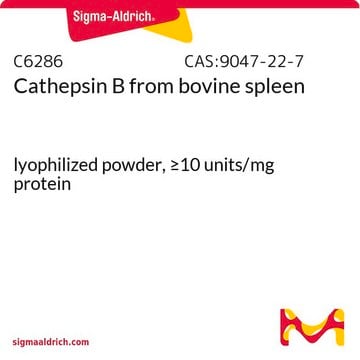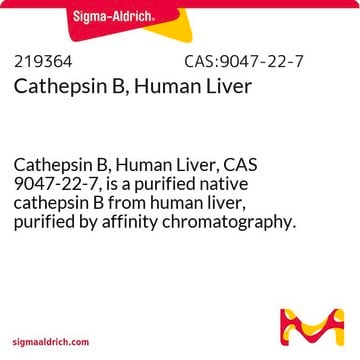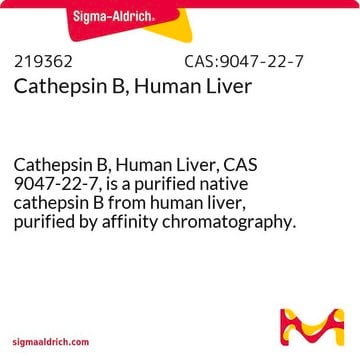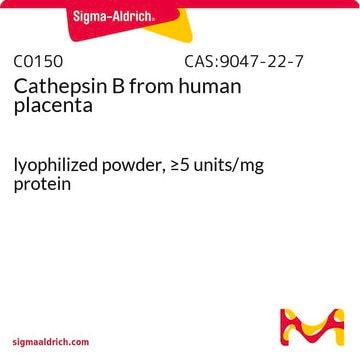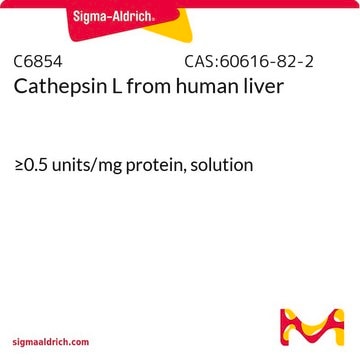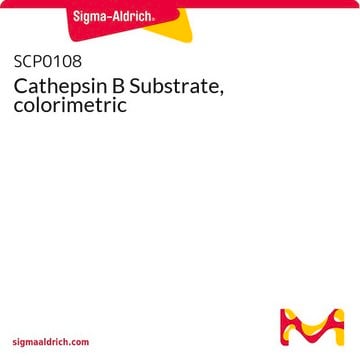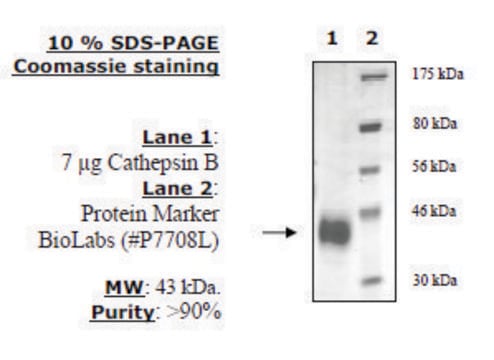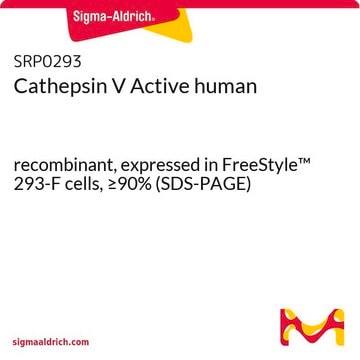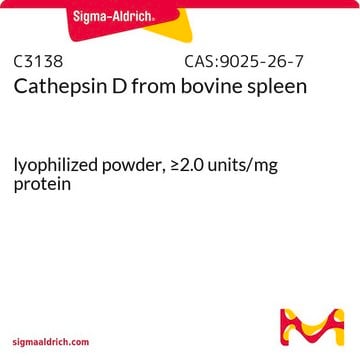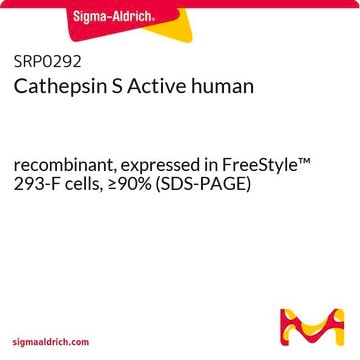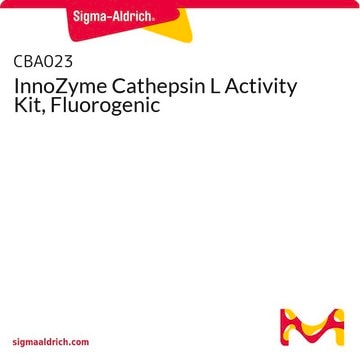C8571
Cathepsin B from human liver
buffered aqueous solution, ≥1,500 units/mg protein (E1%/280)
Synonym(s):
Cathepsin B1
About This Item
Recommended Products
biological source
human liver
Quality Level
form
buffered aqueous solution
specific activity
≥1,500 units/mg protein (E1%/280)
UniProt accession no.
shipped in
dry ice
storage temp.
−70°C
Gene Information
human ... CTSB(1508)
General description
Application
- as a positive control in the screening Cathepsin B inhibitor assay
- in wall extension (expansin activity) assay
- in microinjection human foreskin fibroblasts to test its effect on apoptosis induction
Biochem/physiol Actions
Packaging
Unit Definition
Physical form
inhibitor
related product
Storage Class Code
10 - Combustible liquids
WGK
WGK 3
Flash Point(F)
Not applicable
Flash Point(C)
Not applicable
Certificates of Analysis (COA)
Search for Certificates of Analysis (COA) by entering the products Lot/Batch Number. Lot and Batch Numbers can be found on a product’s label following the words ‘Lot’ or ‘Batch’.
Already Own This Product?
Find documentation for the products that you have recently purchased in the Document Library.
Customers Also Viewed
Articles
Cathepsin B is a lysosomal cysteine proteinase with broad specificity. This protocol uses Nα–CBZ–Arg–Arg–7–amido–4–methylcoumarin as the substrate for fluorometric detection of Cathepsin B activity.
Cathepsin B is a lysosomal cysteine proteinase with broad specificity. This protocol uses Nα–CBZ–Arg–Arg–7–amido–4–methylcoumarin as the substrate for fluorometric detection of Cathepsin B activity.
Cathepsin B is a lysosomal cysteine proteinase with broad specificity. This protocol uses Nα–CBZ–Arg–Arg–7–amido–4–methylcoumarin as the substrate for fluorometric detection of Cathepsin B activity.
Cathepsin B is a lysosomal cysteine proteinase with broad specificity. This protocol uses Nα–CBZ–Arg–Arg–7–amido–4–methylcoumarin as the substrate for fluorometric detection of Cathepsin B activity.
Our team of scientists has experience in all areas of research including Life Science, Material Science, Chemical Synthesis, Chromatography, Analytical and many others.
Contact Technical Service